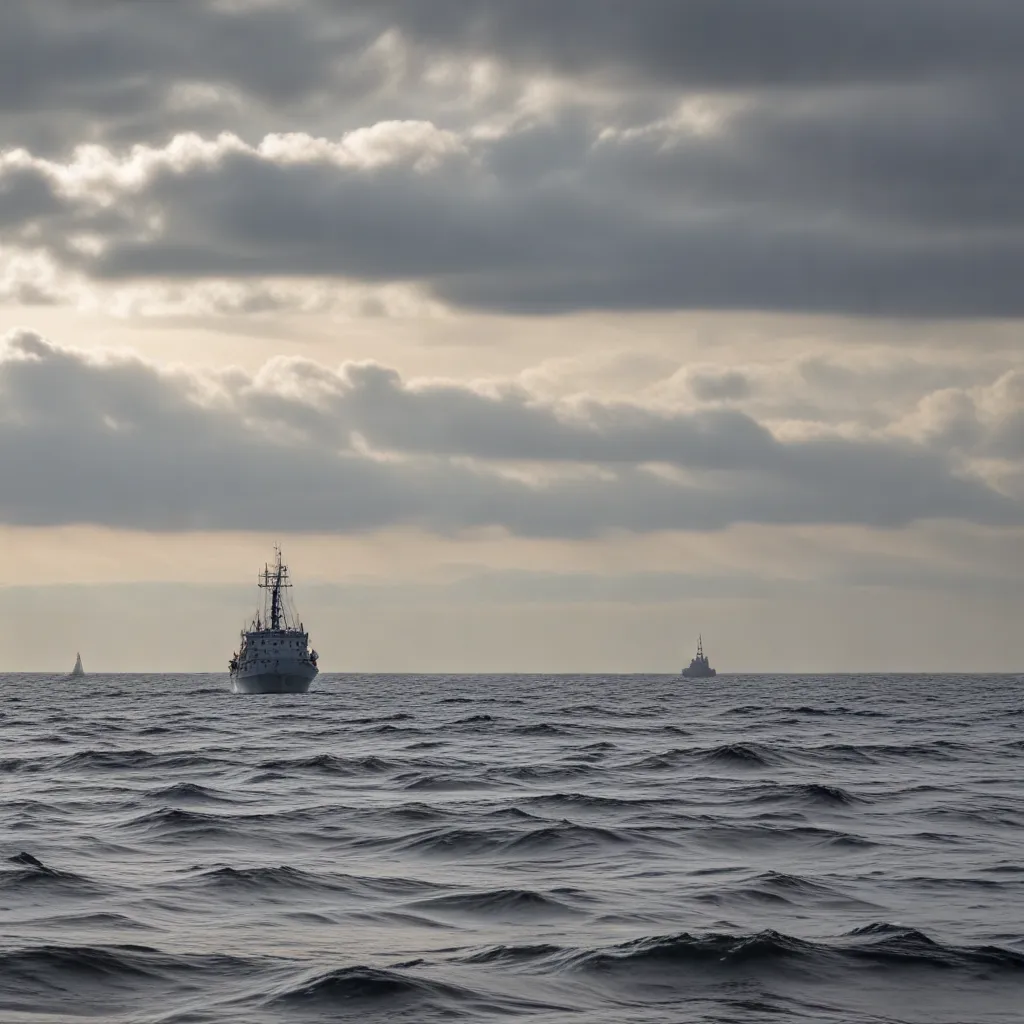
Enhancing Ocean Monitoring and Forecasting for a Sustainable Future
The ocean plays a crucial role in regulating the global climate, providing essential resources, and supporting diverse marine ecosystems. However, the ocean also faces numerous stressors, from warming and acidification to pollution and habitat degradation. To address these challenges and foster a sustainable future, comprehensive and reliable ocean information is essential.
The European Union-funded project EuroSea brought together key actors from the European ocean observing and forecasting communities to integrate existing systems and improve the delivery of ocean data and services to users. This article highlights the main insights and recommendations from EuroSea for advancing the European Ocean Observing System (EOOS) and its links with modeling and forecasting.
The Ocean Observing Value Chain: From Requirements to Impact
The ocean observing value chain, as defined in the Framework for Ocean Observing (FOO), provides a comprehensive approach to designing and evaluating the ocean observing system. This value chain consists of four interconnected steps:
- Requirements: Determining what to measure and why, based on societal drivers, scientific applications, and user needs.
- Processes: Deploying and maintaining the observational platforms and sensors to collect the necessary data.
- Outputs: Ensuring the efficient management, integration, and delivery of ocean data and information products.
- Impact: Assessing the value and use of the provided ocean information by end-users.
The Global Ocean Observing System (GOOS) 2030 Strategy further emphasizes the importance of this value chain approach, highlighting the need for a responsive and user-focused system.
Identifying and Addressing Gaps in the European Ocean Observing System
Through the EuroSea project, several critical gaps and challenges in the design and coordination of the European ocean observing and forecasting system were identified. These include:
Gaps in Essential Ocean Variable (EOV) Observation:
* Insufficient and short-term funding, leading to an unsustainable system
* Inadequate management and cooperation between different entities
* Limitations in foresight activities, policies, and decision-making
Coordination and Integration Challenges:
* Poor connection between platform-oriented networks and thematic networks
* Lack of integration between networks for coordinated EOV observation
* Fragmented information sharing on planned ocean observing activities
Data Management and Interoperability:
* Fragmented standards, formats, and nomenclature
* Lack of information on the precision and accuracy of measurements
* Barriers to timely data delivery and accessibility
Modeling and Forecasting Limitations:
* Insufficient assimilation of in-situ data into ocean models
* Underdeveloped models for biogeochemistry and biology
* Challenges in transitioning research into operational services
To address these gaps and enhance the European ocean observing and forecasting system, EuroSea developed several key recommendations:
Strengthening Observing Networks and Systems
Recommendation: Support the ocean observing community in forming networks that comply with the attributes articulated by GOOS, integrate more coastal monitoring programs, and foster the organization of biological and chemical EOV observing communities.
Improving Coordination and Planning
Recommendation: Incentivize Member States to use a common, pan-European ocean observation planning platform, develop a central European ocean observation monitoring service, and enhance the GOOS BioEco Portal to provide an integrated perspective of the European biological ocean observing system.
Advancing Standards and Best Practices
Recommendation: Invest strategically in entities advancing the harmonization of comparative sampling and analysis methods, including the development of reference materials and interlaboratory comparison exercises.
Enhancing Data Management and Accessibility
Recommendation: Ensure that generated data follows FAIR principles and is freely and openly available, while also addressing latency issues and improving the capacity to assimilate in-situ data into ocean models.
Strengthening Modeling and Forecasting
Recommendation: Improve the integration between the observing and modeling communities, conduct targeted design experiments for an optimal integrated in-situ observing system, and support the development of Digital Twin Oceans (DTOs) to enhance ocean management and understanding.
Governance and Sustainability: The Path Forward
Achieving a robust and sustained European ocean observing and forecasting system requires high-level integration and coordination at national, European, and international levels. The European Ocean Observing System (EOOS) framework is a critical initiative aimed at aligning and integrating existing ocean observation efforts to ensure their quality, usefulness, efficiency, and value for money.
Recommendation: Establish an EOOS Coordination Office to consolidate fragmented coordination efforts, optimize the use of existing resources, and advance the implementation of EOOS. Encourage the formation of national coordination structures for ocean observing activities and support long-term strategic investments in tools and entities that strengthen coordination, interoperability, and data harmonization.
Securing long-term, sustainable funding for ocean observing is essential to ensure the continuous delivery of crucial ocean information. Strategies and plans should be formulated at the regional and European levels, considering legal requirements and emerging societal needs.
Recommendation: Incentivize Member States to join and support European-wide marine Research Infrastructures, improve the implementation of the international legal framework for ocean observing, and support innovation and industry engagement to advance ocean observing technologies.
By addressing the identified gaps, strengthening coordination and governance, and securing sustainable funding, the European ocean observing and forecasting system can become a more integrated, responsive, and user-focused entity within the global context. This will enable the delivery of essential ocean information to support scientific research, policy decisions, and sustainable management of marine resources and activities.
Conclusion
The EuroSea project has provided valuable insights and recommendations for advancing the European Ocean Observing System and its links with modeling and forecasting. By enhancing coordination, improving data management, and strengthening the overall governance and sustainability of the system, Europe can work towards a more comprehensive, fit-for-purpose ocean observing and forecasting capability. This will be crucial in addressing global challenges, supporting a thriving blue economy, and fostering a sustainable future for our ocean.
For more information on the EuroSea project and its outcomes, please visit the EuroSea website or explore the Frontiers in Marine Science article.












